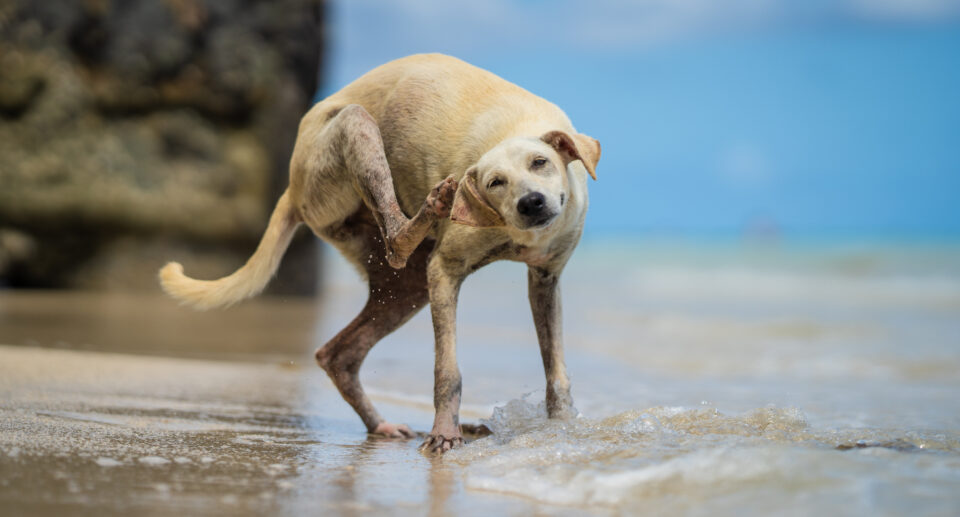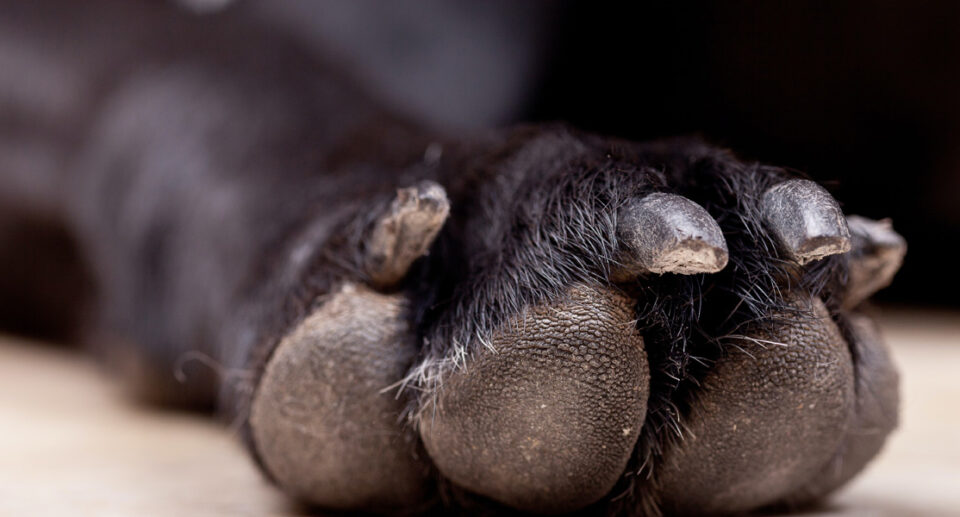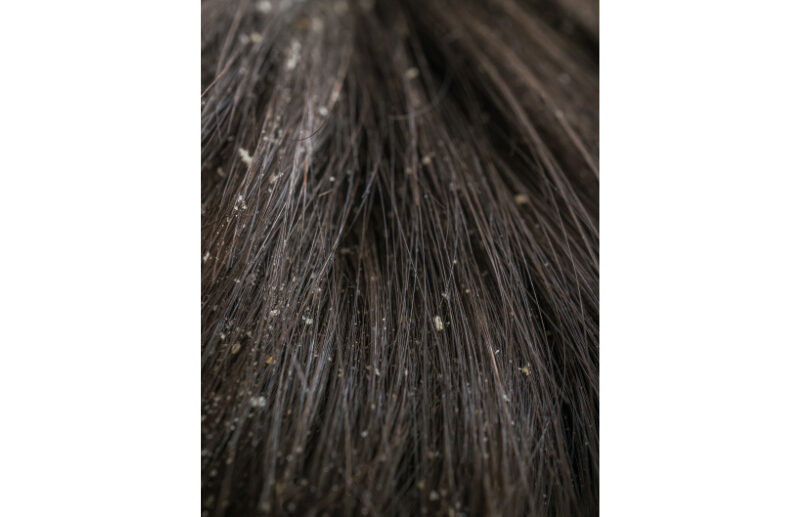
Is your pet’s summer of fun turning into a summer of nonstop scratching? It’s not uncommon for dogs and cats to experience itchy skin in the summertime. From pesky parasites to seasonal skin issues, summer can be a real bummer for pets with sensitive skin.
Learn all about the top five reasons pets get itchy in the summertime and what you can do to relieve your pet’s summertime skin woes.
Top 5 Reasons for Summer Itch in Pets
1.Itchy Flea Bites.
Fleas thrive in hot, humid weather, leaving dogs and cats with small, itchy bites. On some pets, especially those with long fur or a dark-colored coat, fleas can easily go unnoticed. A foolproof way to find fleas: look for the mess they leave behind. As fleas feed off your pet’s blood, they deposit blood-tinged feces, commonly called “flea dirt,” in your pet’s coat. Flea dirt looks like black specks and can resemble coffee grounds. You might see it when you pet or brush your dog or cat. If those black specks turn reddish-brown when picked up with a wet paper towel, it’s a sure sign that your pet has fleas.
2. Seasonal Allergies.
Summertime brings a host of seasonal allergens like pollen, grass, and weeds, as well as mold and mildew that thrive in humid conditions. Fleas, too, can cause allergic itch in pets. If your pet’s itchy skin may be triggered by environmental allergens found outside, it can help to use topical pet itch relief treatments such as shampoos and sprays, as well as paw wipes and bath wipes to soothe inflamed skin and remove allergens. Prescription allergy medication, available from your veterinarian, may be necessary if itchy skin persists.
3. Swimmer’s Itch.
Does your pet love cooling off in the pool or at the lake or beach? Frequent swimming can strip the skin’s barrier of its natural, protective oils, leaving the skin dry and itchy. Salt or chlorine in the water, too, can cause itchy skin to flare up. Pets that swim in lakes and ponds can also be susceptible to swimmer’s itch caused by parasites called schistosomes. These parasites cause a red, itchy rash, and can also survive internally, causing gastric issues like vomiting and diarrhea. Always bathe your pet after they swim in a pool or natural body of water, and see your veterinarian if they develop a rash or other unexplained symptoms after swimming.
4. Fungus.
Hot, humid conditions in the summer can allow yeast and other fungi to thrive. Pets can develop fungal skin infections which can cause itching, red skin, hair loss, and a musty, popcorn-like body odor. Ringworm, a fungal skin infection, is also more common in pets in the summer. Ear infection, too, can be a culprit, especially in pets with floppy ears. The key to keeping fungal itch at bay is to keep your pet clean and dry, especially in moisture-prone areas like ears and skin folds.
5. Low humidity.
While moist, humid conditions in the summer can lead to parasites and fungal skin conditions, dry summer heat, too, can make your pet itchy. What’s more, air conditioning pulls moisture from the air and can zap moisture from your pet’s skin, too, leaving it dry and itchy. Dry skin due to low humidity may clear up with less exposure to air conditioning, a skin and coat moisturizing conditioner, and with more omega-3 fatty acids in your pet’s diet.
How To Kick Your Pet’s Summer Itch
Itching and scratching can really take the fun out of your pet’s summer. Not only is summer itch uncomfortable for pets, it can also lead to secondary skin infections if left untreated.
For immediate relief, use a topical itch-relief shampoo, spray, or wipes for pets. To help promote healthy skin, consider giving your pet a daily omega-3 fatty acid skin and coat supplement. Be sure to rule out fleas by looking for flea dirt, and make sure your pet is protected from pests with a flea and tick preventative. Keep your pet clean and dry this summer, especially after swimming, bathing, and walking in the summer rain.
If your pet’s still struggling with summer itch, see your vet or schedule an online vet appointment today.
VISION
Every pet deserves to live a long, happy, healthy life.





